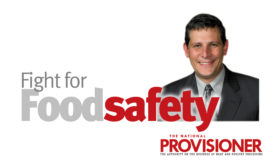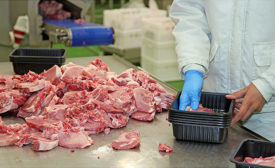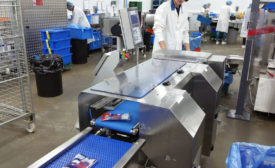Food Safety
Food Safety
Employee hygiene is the key meat and poultry safety
High on hygiene: Employee buy-in on hygienic measures is critical for minimizing the spread of pathogens in meat and poultry plants.
Read More
Regulations & Legislation
FSIS moves on label claim sampling program, partially hydrogenated oils
Read MoreFood Safety
Can genomics advance pre-harvest intervention strategies?
Common-sense prevention still works for pre-harvest intervention, while new food safety tools continue to be researched.
Read More
Meat Science Review
Continued pre-harvest efforts to address Salmonella in bovine lymph nodes
Read MoreProtein Problem Solver
Detecting metal while sidestepping in-pack oxygen scavengers
June 11, 2018
Stay ahead of the curve. Unlock a dose of cutting-edge insights.
Receive our premium content directly to your inbox.
SIGN-UP TODAYCopyright ©2024. All Rights Reserved BNP Media.
Design, CMS, Hosting & Web Development :: ePublishing











